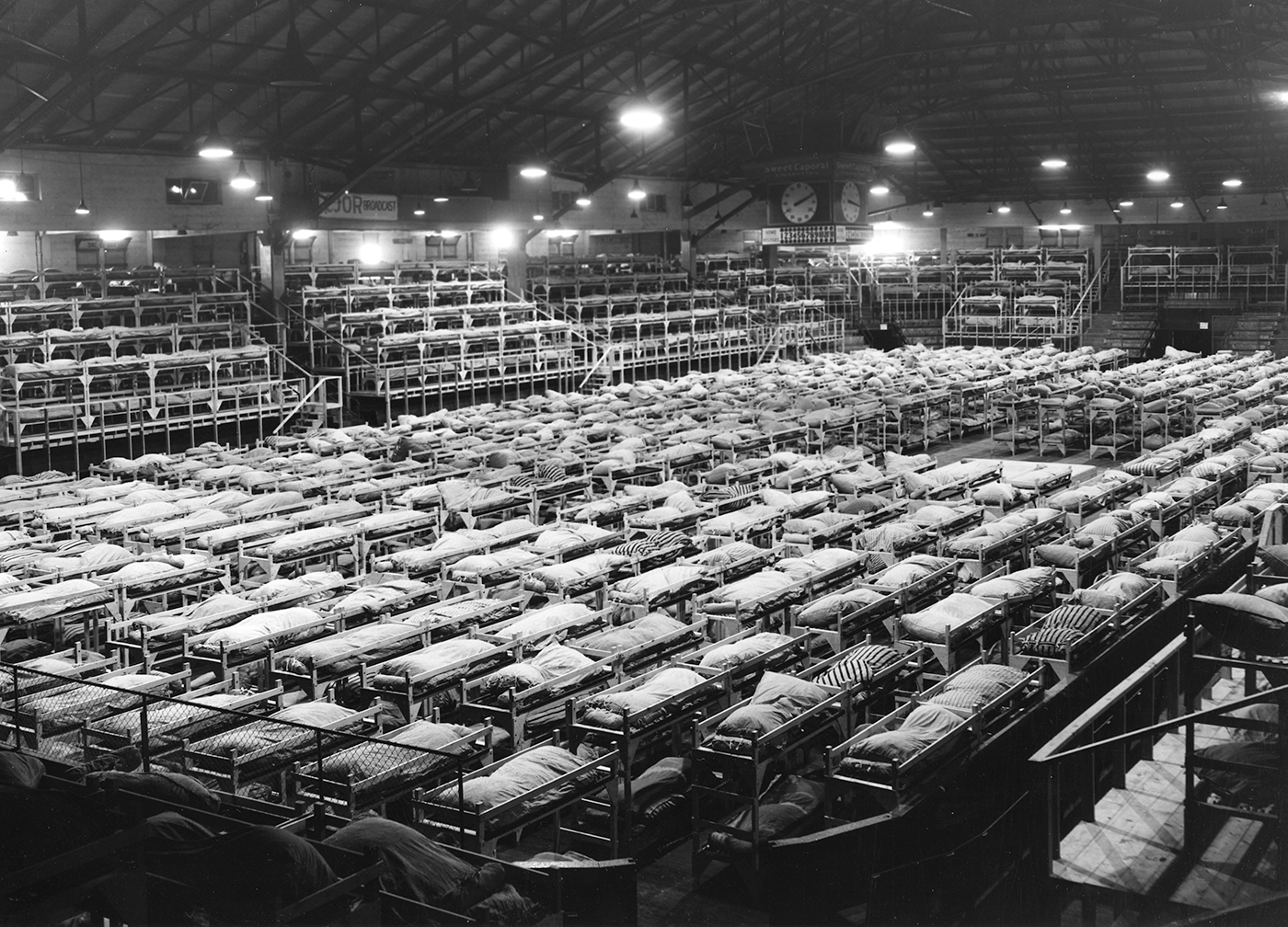Learning from past wrongs

This spring, the highly acclaimed Landscapes of Injustice project — which centered the dispossession and displacement of Japanese Canadians in the 1940s and 1950s in Canada's national conversation — formally wrapped up after a seven-year run that resulted in the capstone "Broken Promises" exhibit, eponymous book (McGill-Queen's), online database and complementary website.
Now, the concept behind this project is going global thanks to a $2.5 million grant from the Social Sciences and Research Council of Canada (SSHRC) that has been matched with an additional $3.3 million in contributions from project partners, which will fund a new research network titled Past Wrongs, Future Choices (PWFC).
Co-directed by UVic historian Jordan Stanger-Ross and Queens U. geographer Audrey Kobayashi, the PWFC initiative will connect community partners and researchers from 40 organizations on four continents to explore the long-neglected connections among injustices toward people of Japanese descent (Nikkei), who in the mid-twentieth century were uprooted, interned, dispossessed and displaced in allied countries across the Americas and the Pacific.
Housed at UVic’s Centre for Asia-Pacific Initiatives and Centre for Global Studies, with partners in Australia, Brazil, Japan, the United States and Canada, the project will prompt communities across the world to grapple with anti-Asian racism from the past and present by producing museum exhibitions, digital collections, documentary films, teaching resources and books that show what these transnational injustices can teach us today.

As the PWFC partnership begins its activity, we invited Jordan Stanger-Ross, Audrey Kobayashi and project manager Michael Abe to share their aspirations for this major initiative.
Q. What can this new project teach us about the displacement and dispossession of Nikkei communities that we did not know before?
Abe: Many in our Nikkei community in Canada are familiar with the Japanese Canadian uprooting, dispossession and internment experience, and somewhat knowledgeable about the Japanese American incarceration, but they are quite surprised and intrigued when hearing about what happened to their counterparts in South America. I would wager that the number of Japanese Canadians knowledgeable about the experiences of Japanese Australians could be counted on one hand. Until now.
Stanger-Ross: Explanations of these events in Canada and elsewhere have tended to focus on local or national actors, some particularly racist politician, or some local newspaper that fanned the flames of hatred. When we pull back our vantage point to see similar, but not identical, events unfolding across the globe, we can to ask new questions about how racism can be both globally pervasive and locally specific.
Q. How does knowing about a historical injustice such as this help us to make better choices for the future?
Kobayashi: The lessons of the past often help to shed light on what is happening in the present and can help different racialized people recognize and understand what they have in common, giving them a vision for working together to overcome racism.
Stanger-Ross: At a time when it is hard to feel optimistic about our future collective choices, I think we need every tool that might help. History can be one of these. By carefully thinking through how injustice happens, and why so many people are complicit, I think we can learn to demand better use of public power today.
Q. Past Wrongs, Future Choices takes wide ranging and creative approaches to creating and sharing knowledge. Which ones excite you the most, and how do you think they will contribute?
Abe: I am really drawn to the integration of art in this project — not only with the artists in residence we will host and the museum exhibits we will develop, but also with the creative approach to film that we will use to tell these histories. Art in any given place and time is certainly influenced by the underlying aspects of the societies in which the artist is embedded and I’m looking forward to seeing how the expressions of art vary from country to country.
Stanger-Ross: I’m so excited about all of our creative approaches to making and moving knowledge! I guess I’m most curious to see what happens as participants engage one another across their various disciplines. When teachers, artists, scholars, museum professionals, film-makers and archivists all learn together and from one another, I think a kind of magic can happen.
Q. Past Wrongs, Future Choices builds upon years of community–university partnerships established for the Landscapes of Injustice project. What is the most important lesson that you’re carrying forward into the Past Wrongs, Future Choices initative?
Abe: I was really impressed by how the Landscapes of Injustice project worked with the community, ensuring there was a shared understanding of the community's needs and that genuine relationships were built between our collaborators. Those in the community were called upon for their advice, guidance and expertise in their respective areas. The museum exhibit curators, in particular, went to great lengths to get to know the narrator families and help them feel comfortable about sharing certain aspects of their personal lives with the public.
Kobayashi: We have so much talent and knowledge among the community partners with whom we have worked for the past years. This is an opportunity to build upon that work and to reach out across the Pacific and Atlantic oceans to our new partners. Our projects will push the relationship between social justice and creativity while advancing possibilities for collaborative vision.
To learn more about the Past Wrongs, Future Choices project, contact project manager Michael Abe at mkabe@uvic.ca
Article by Philip Cox
